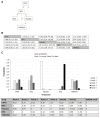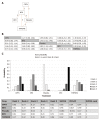Systemic review and network meta-analysis: Prophylactic antibiotic therapy for spontaneous bacterial peritonitis
- PMID: 32547691
- PMCID: PMC7280858
- DOI: 10.4254/wjh.v12.i5.239
Systemic review and network meta-analysis: Prophylactic antibiotic therapy for spontaneous bacterial peritonitis
Abstract
Background: Spontaneous bacterial peritonitis (SBP) is an important prognostic factor for outcomes in patients with cirrhosis. Antibiotic prophylaxis is recommended in patients at high risk for developing SBP, but the choice of antibiotics remains unclear.
Aim: To evaluate the efficacy of various antibiotics for prophylaxis of SBP based on randomized control trials (RCTs).
Methods: Electronic databases were searched through November 2018 for RCTs evaluating the efficacy of therapies for primary or secondary prophylaxis of SBP. The primary outcome was the development of SBP. Sensitivity analyses limited to studies of primary or secondary prophylaxis and studies reported after 2010 were performed. The secondary outcome was the risk of all-cause mortality or transplant. The outcomes were assessed by rank of therapies based on network meta-analyses. Individual meta-analyses were also performed.
Results: Thirteen RCTs (1742 patients) including norfloxacin, ciprofloxacin, rifaximin, trimethoprim-sulfamethoxazole (TMP-SMX), or placebo/no comparator were identified. Individual meta-analyses showed superiority of rifaximin over norfloxacin as well as norfloxacin and TMP-SMX over placebo. Network meta-analysis demonstrated the rank of efficacy in reducing the risk of SBP as: Rifaximin, ciprofloxacin, TMP-SMX, norfloxacin, and placebo/no comparator. Rifaximin ranked highest in sensitivity analyses limited to studies of primary or secondary prophylaxis and studies reported after 2010. Similarly, rifaximin ranked highest in reducing the risk of death/transplant.
Conclusion: The present comprehensive network meta-analysis provides RCT based evidence for superior efficacy of rifaximin compared to other antibiotics for the prophylaxis of SBP and reducing risk of death/transplant. Further RCTs are warranted to confirm our findings.
Keywords: Antibiotics; Cirrhosis; Network meta-analysis; Prophylaxis; Spontaneous bacterial peritonitis; Systemic review.
©The Author(s) 2020. Published by Baishideng Publishing Group Inc. All rights reserved.
Conflict of interest statement
Conflict-of-interest statement: Sakuraba A is the speaker’s bureau for Takeda. The others have no conflict.
Figures



References
-
- Garcia-Tsao G. Current Management of the Complications of Cirrhosis and Portal Hypertension: Variceal Hemorrhage, Ascites, and Spontaneous Bacterial Peritonitis. Dig Dis. 2016;34:382–386. - PubMed
-
- Facciorusso A, Papagiouvanni I, Cela M, Buccino VR, Sacco R. Comparative efficacy of long-term antibiotic treatments in the primary prophylaxis of spontaneous bacterial peritonitis. Liver Int. 2019;39:1448–1458. - PubMed
-
- Saab S, Hernandez JC, Chi AC, Tong MJ. Oral antibiotic prophylaxis reduces spontaneous bacterial peritonitis occurrence and improves short-term survival in cirrhosis: a meta-analysis. Am J Gastroenterol. 2009;104:993–1001; quiz 1002. - PubMed
-
- Llach J, Rimola A, Navasa M, Ginès P, Salmerón JM, Ginès A, Arroyo V, Rodés J. Incidence and predictive factors of first episode of spontaneous bacterial peritonitis in cirrhosis with ascites: relevance of ascitic fluid protein concentration. Hepatology. 1992;16:724–727. - PubMed
-
- Runyon BA. Low-protein-concentration ascitic fluid is predisposed to spontaneous bacterial peritonitis. Gastroenterology. 1986;91:1343–1346. - PubMed
LinkOut - more resources
Full Text Sources

